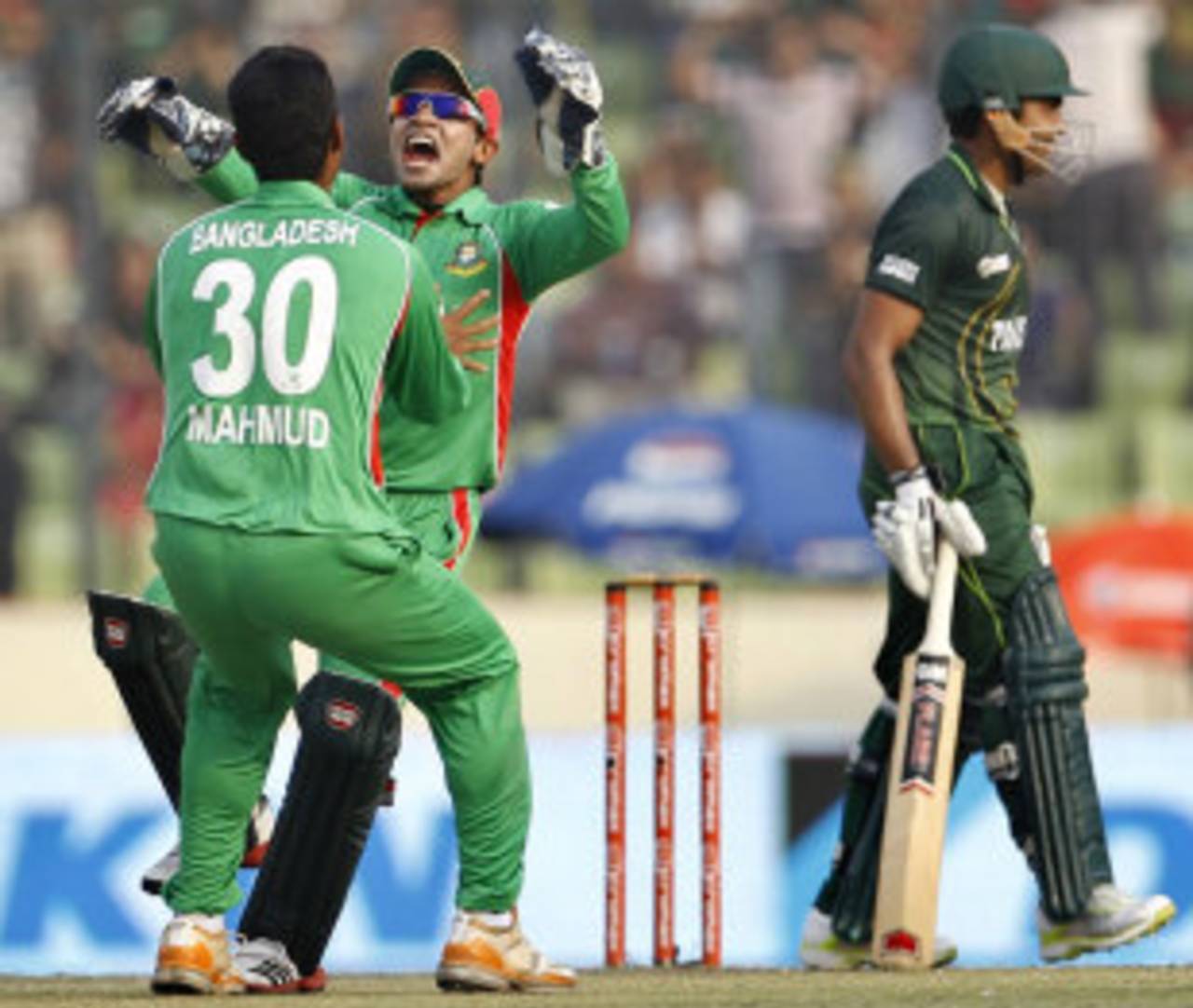Sitting transfixed during last month's
Asia Cup final, Pakistani fans went through an emotion they hadn't felt before. As the match approached a crescendo, they felt unsure whose side they were on. Even hot-blooded diehards, the kind who paint the star and crescent on their faces and wear Pakistan ODI shirts to bed, experienced these feelings. A friend of mine who is firmly of that ilk put the matter this way: it wasn't really that he wanted Bangladesh to win, but had Bangladesh won, he would not have minded it all that much.
Misbah-ul-Haq, a man of intelligence and insight, captured the sentiment best. Relieved to lift the trophy after a cliffhanger, he said that the real winners of the contest had been Bangladesh. This comment must have resonated loudly in Dhaka and beyond. It certainly captured the mood of the audience back in Pakistan.
For Bangladesh this is a new level of regard and respect. They have been playing international cricket since 1986 but have found it difficult to compete alongside the frontline teams. Despite this disappointing record, they made an articulate statement through the Asia Cup that drew attention to their ability and ambition.
It may perhaps be premature to speak of the arrival of Bangladesh, in that they have several rungs to climb on the rankings ladder before they can be considered an elite team. But they have definitely grown into an authentic threat in limited-overs cricket, where they seem to have established a new consistency that cannot be trivialised. Over the last three years their ODI win-loss ratio stands at
0.77, against 0.38 overall. In the Asia Cup they defied odds to overcome Sri Lanka and India, and twice nearly beat Pakistan. In the tournament final they had the upper hand going into the last over, and nearly pulled off a win.
Several features of Bangladesh's performance confirm an emerging trajectory in the short game. They played with talent and flair in all departments, and they repeatedly rose to meet challenges head-on. Their make-up reveals traces from the DNA of their Asian neighbours - excitement and style from Pakistan, excellence in the chase from India, a taste for unorthodoxy from Sri Lanka.
Already they have in their midst a brilliant cricketer in Shakib Al Hasan, who has been and continues to be the No. 1 ODI allrounder in the ICC rankings. They also have a dashing and debonair opening batsman in Tamim Iqbal, and in Nasir Hossain an attacking middle-order batsman with a remarkable ODI average of 41.90 from 14 matches; his career may be less than a year old, but most teams would be pleased to select him.
As with India, Pakistan shares a bitter and bloody history with Bangladesh. The two countries came to life in 1947 as Siamese twins, and their tenuous connection was rudely severed in 1971. So the context is already in place
Pakistani fans have been harbouring mixed feelings towards Bangladesh after the Bangladesh Cricket Board
protested Pakistan's victory in the final on a technicality. No doubt this was in poor taste, but one should not begrudge them the gesture. If you come so close to a highly competitive international title, emotions can spill over. It could happen to anyone.
It is important to get beyond that and take a broad view on the rise of Bangladesh, because it has the potential to fundamentally alter South Asia's regional cricket dynamic. At the moment the cricket equation within Asia is stymied by the fractious relationship between India and Pakistan. A rising Bangladesh - and possibly also Afghanistan, who are beginning to make credible cricketing noises of their own - has the power to make this stalemate obsolete.
Bangladesh has already successfully launched its own T20 league, in which Pakistani players were welcomed to great acclaim, in contrast to the frosty attitude of the IPL towards Pakistanis. In the long run, it is not difficult to see Pakistan develop a cricketing rivalry with an accomplished Bangladesh team - one that could well rank alongside the traditional one with India. As with India, Pakistan shares a bitter and bloody history with Bangladesh. The two countries came to life in 1947 as Siamese twins, and their tenuous connection was rudely severed in 1971. So the context is very much in place.
For now, Pakistanis will probably find it hard to imagine a series with Bangladesh generating as much ardour and anxiety as one with India, but a competent Bangladesh team could transform that complexion very quickly. Over the last decade Bangladesh have won against every other international team, but they have not beaten Pakistan since 1999. Let Bangladesh beat Pakistan a few times. Let them throw up a few more players into the top of the world rankings. One day, perhaps soon, they will produce the next Virender Sehwag, the next Wasim Akram, the next Kumar Sangakkara. When that happens, a fervent cricketing rivalry between Bangladesh and Pakistan will emerge as surely as flames from a fire. It is a phenomenon waiting to happen.
